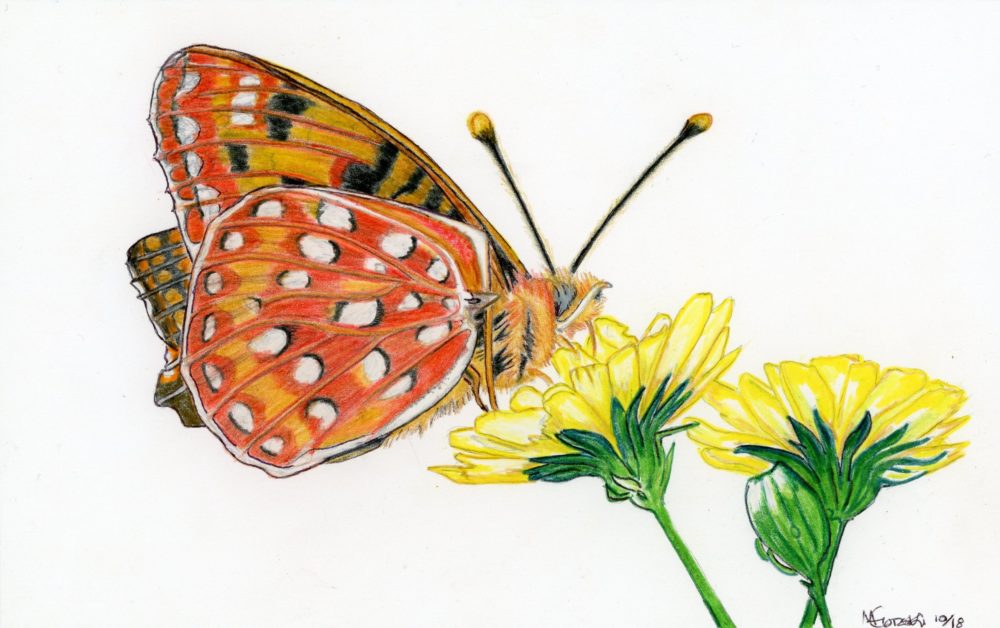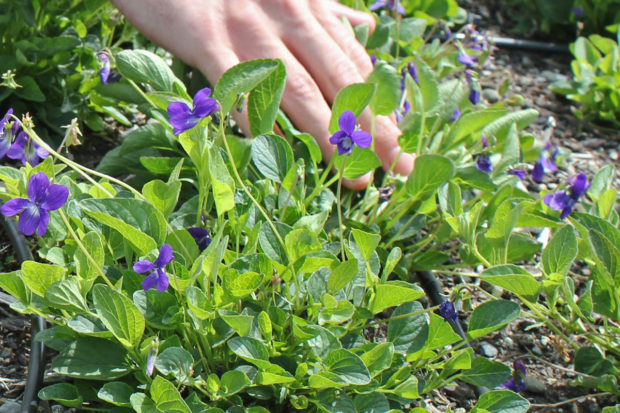By William Angelmyer, former SPP Turtle Technician and current student at The Evergreen State College. Photos by SPP staff unless otherwise noted.
Bill worked as a Turtle Technician for SPP from 2015-2018 and is now completing his undergraduate degree at The Evergreen State College. Note that some of the turtle care protocols referenced in this blog have changed since Bill left the program.

“Any job that offers an opportunity to change perceptions is more than just a job; it’s a learning experience.”
Summer is coming to an end. This is an exciting time for the SPP Turtle Technicians at Cedar Creek. The end of summer means that soon the technicians will be receiving new turtles. Speaking from personal experience, I know that summer is a good time to do a lot of reading and research—basically, doing book work. Without turtles to manage, we technicians spend the summer studying and catching up on other projects.
Raising mealworms for the next round of turtles and entering data for a woodpecker monitoring project keep us busy every day, but the real valuable time is the time spent learning about biology and animal behavior. Of course this takes some self-motivation to launch because you are responsible for your own choice of study. No one makes you read text books. For those of us that use education as a coping mechanism to deal with incarceration, we can’t be stopped from studying. After an entire summer of reading, though, it is a refreshing change to receive new western pond turtles and start practicing animal care and shell disease management. Although this hands-on work carries with it a new level of stress and anxiety, it also provides valuable moments fraught with emotional ups and downs. Caring for the turtles brings home some of the studying from a theoretical context into a concrete reality. All of the turtles we receive after summer have gone through a recent debriding process. Debriding is a procedure where portions of their shells have been cut away in order to stop the disease from spreading.


Unfortunately, this procedure—removing damaged portions of the shell—also leaves the turtles with wounds that have to be taken care of diligently in order to ensure that they heal efficiently and without infection. This is where the emotional rollercoaster part of the job comes to bear. Not all the turtles heal at the same rates. Some turtles heal slowly. Sometimes, they heal very slowly. Sometimes turtles will stop eating for days or weeks. Cataloging their progress and behavior can be worrying at times.

However, these new worries are accompanied by a refreshing hands-on learning experience. Many of the technicians have never worked closely with reptiles. Many people have preconceived notions about reptiles having a deficiency of personality. Moreover, reptiles are stereotyped as being only focused on needs and lacking social interactions. After working closely with turtles, though, it is easy to recognize the personalities of each individual. Like many mammals, some are social and playful, some are fearful and isolate, and some are fixated completely on food.

Seeing this new perspective is one of the most valuable experiences I gained as a Turtle Technician. Any job that offers an opportunity to change perceptions is more than just a job; it’s a learning experience. My work with SPP was also greatly valuable to me because seasonal changes offer such a wide variety of experiences. Summer means book work and the fall means implementing that study into practical experience—along with the experience of caring for real animal lives. I miss my times at the CCCC Turtle Area. That may seem a little insane, considering I was incarcerated at the time. But the time I spent learning and caring for creatures, which I had had very little understanding of before, was a magical time during which I rarely realized that I was incarcerated.







